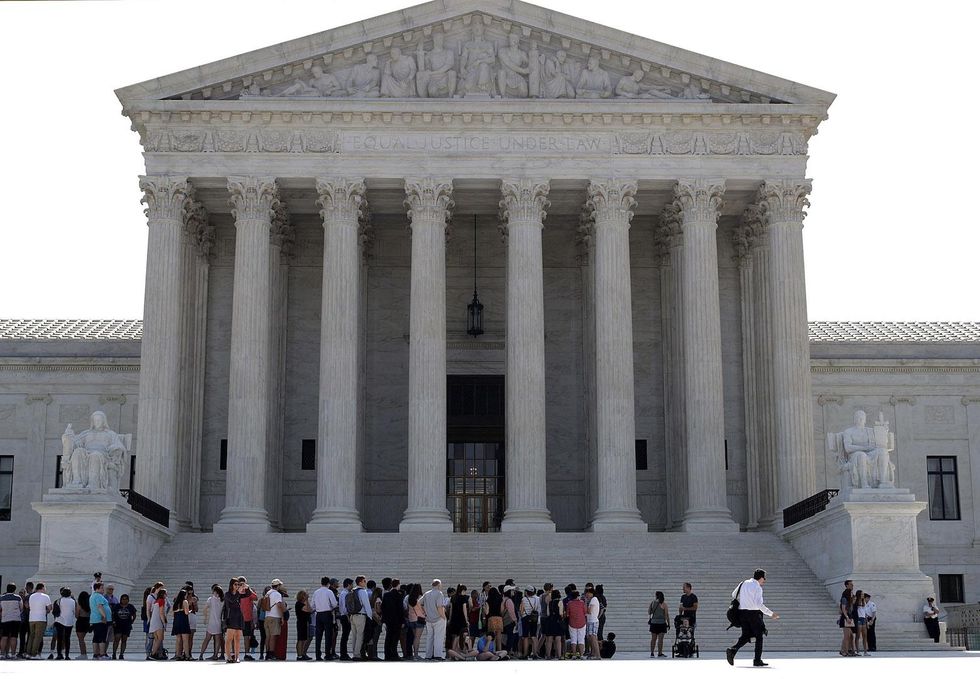
The Supreme Court ordered judges to reconsider a ruling that North Carolina's congressional voting map is an unconstitutional gerrymander. (Chip Somodevilla/Getty Images)

In January, a panel of federal appeals judges ruled that North Carolina's congressional voting map was unfairly drawn to favor Republicans. On Monday, the U.S. Supreme Court told those judges to take a second look based on how the nation's highest court ruled in a gerrymandering case in Wisconsin last week, Bloomberg reported.
Instead of taking up the case themselves, the Supreme Court sent it back down to the appeals court, which will now ask those challenging the map to prove that a voter in each district has been harmed.
North Carolina's map was redrawn after federal courts ruled that the map of congressional districts, drawn by Republicans in 2011, unconstitutionally weakened the influence of black voters.
Republicans re-drew the map in a way that allowed Republicans to win 10 out of the state's 13 House seats. A notable quote from Republican state Rep. David Lewis at that time was used to fuel the case against the current map.
"I propose that we draw the maps to give a partisan advantage to 10 Republicans and three Democrats because I do not believe it's possible to draw a map with 11 Republicans and two Democrats," Lewis said at the time, according to the Raleigh News & Observer.
The 2011 map was challenged in court, and that's when the three-judge panel ruled that the map was drawn "with the intent of discriminating against voters who favored non-Republican candidates."
According to the court, the map violated the Equal Protection Clause of the 14th Amendment, the First Amendment, and Article I of the Constitution.
Last week, the Supreme Court declined to decide a Wisconsin partisan gerrymandering case. Instead, the Supreme Court said that voters in each district had to prove their rights had been violated. The challengers had initially asked the court to consider the state as a whole.
That decision led to Monday's order for federal judges to take a look at the North Carolina case again.
According to Allison Riggs, senior voting rights attorney for the Southern Coalition for Social Justice, challengers would like the case to get back to the Supreme Court in time for 2020 elections.